Issued on: 25/08/2021 -

Kabul (AFP)
Streets that were once bustling with life have fallen silent. Few women dare to leave their homes. Fighters patrol the neighbourhoods.
Welcome to the new Kabul, a city ruled by fear of the Taliban.
"It's like a zombie apocalypse," a 20-year-old women's rights activist tells AFP on condition of anonymity.
Around Kabul airport, chaos reigns as thousands of people mass, desperate to flee ahead of the August 31 deadline for the US withdrawal.
But everywhere else, the streets are eerily quiet.
"People almost don't go outside and (when they do) they are in a rush," the activist says. "People get home as soon as they can."
Under the ousted government, an increasing number of women were adopting Western clothing, attending university, and working.
Now, even in Kabul, women hardly venture out of their homes. Burqa sales have rocketed.
Many Afghans fear a repeat of the brutal interpretation of Islamic law that the Taliban implemented when first in power from 1996-2001.
The Taliban have vowed a softer, more inclusive regime this time around, offering assurances of rights to women.
However, the activist says she has been unable to return to university since the Taliban's stunning military victory on August 15.
She says the hardliners do not want women to attend class until they can segregate classes along gender lines.
"I think it's an idiotic decision," she says, because there simply aren't enough female university teachers.
The bank she works for has also barred her from returning, citing fears for her safety.
- Reign of fear -
On the city walls, advertisement posters featuring female models have either been defaced or torn down.
Pop music, banned outright under the Taliban's former regime, can no longer be heard in Kabul.
Only the sound of children playing -- oblivious perhaps to the depth of the transformation under way in their homeland -- breaks the silence.
Widespread fear, says a Kabul banker, is working to the Taliban's advantage as they seek to establish their dominance.
"They don't have any army to control people but the fear is controlling everyone," he says on condition of anonymity.
While the Taliban leadership strives to project an image of an organised movement capable of governing, the reality on the ground is that the militants' behaviour varies greatly from place to place.
"Some groups are acting good and nice but some of them go to restaurants without paying," the banker says.
- 'Normal' in Khost -
In the southeastern city of Khost, long a conservative city seized by the Taliban shortly before Kabul fell, the militants appear to have adopted a softer approach.
"After a few days, the situation returned to normal. The flow of the city has slowed down but many shops and small businesses have reopened now," a local aid worker tells AFP.

"Boys and girls go to school like before," he says.
"The attitude of the Taliban towards the people is much softer than what people thought," he adds, noting he danced with friends at a wedding held last week.
However, some residents fear economic woes, particularly with government services halted.
"Many people lost their jobs, they are afraid of a bad economic situation," he says.
- No money to rebuild -
At the market in the northern city of Kunduz, Taliban militants use loudspeakers to announce their new rules to residents.
Devastated by weeks of fighting leading up to the Taliban's win, the city is now starting to see some rebuilding -- though progress is slow.
"People started rebuilding their shops but not the homes because people fled and did not return, or don't have the money to rebuild," a local business owner tells AFP.
Some poorer residents are so scared of the impact the regime change may have that they have stopped buying fruit and even using soap, he says.
"They think they should save because in the future there is no way to earn money."
© 2021 AFP
Issued on: 25/08/2021 -

Kabul (AFP)
Schools and rallies bombed, hospitals targeted and commuters ambushed: for years, the Hazara community has suffered some of Afghanistan's most violent assaults.
Now, with the Taliban back in control, the majority Shiite Muslim group fears the Sunni hardliners may again turn on them -- just as they did during their last regime in the 1990s.
And even as the Taliban have pledged a softer rule this time, a statue of a prominent Hazara leader was vandalised just days after the Islamists swept back into power.
Here is a brief history of the community:
- Who are the Hazaras? -
Hailing from the country's rugged central highlands, the Hazaras are believed to trace their lineage from Genghis Khan's Mongol invaders who ransacked Afghanistan in the 13th century.
Comprising between 10 to 20 percent of the country's 38 million people, Hazaras have been marginalised for their faith in a country riven by deep divisions.
By some estimates, nearly half of the Hazara population was wiped out in the late 19th century, with many later enslaved during the conquest of their traditional homeland by Pashtuns, the country's biggest ethnic group.
Throughout the centuries, the group has been subjected to slavery, religious and economic persecution, as well as displacement and ethnic cleansing.
They have also been targeted by an array of different groups during the past four decades of conflict, including the vicious shelling of their areas.
Hazara militia fighters were accused of carrying out atrocities of their own during the civil war that followed the withdrawal of the Soviet army in the late 1980s.
During the Taliban's scorched-earth takeover of the country in the late 1990s, thousands of Hazaras were believed to have been slaughtered by the militants.
- Why are they targeted? -
The Hazaras make up the bulk of the country's Shiite minority, which has historically been despised by Sunni hardliners who consider the sect heretics.
The group has also been accused of being too closely allied to neighbouring Iran, and tens of thousands have moved over the years as economic migrants to work mostly menial jobs.

Thousands of Hazaras have been trained by Iranian security forces and deployed with Shiite militias in Syria's civil war over the past decade.
Last year, the Iranian foreign minister called Hazara militia fighters the "best forces with a military background" that could be used against the Islamic State group in Afghanistan.
- What happens to them when US troops leave? -
Few groups benefited from the order established by the US overthrow in 2001 of the Taliban as much as the Hazaras.
They were able to put their children in schools -- including their daughters -- and entered the political scene and workforce in unprecedented numbers.
But those gains remained tenuous.
The group took the brunt of escalating violence as Islamic State suicide bombers targeted their mosques, schools, rallies and hospitals in western Kabul's Hazara enclave of Dasht-e-Barchi, killing hundreds of people.
Fearing they will again be slaughtered when international troops exit Afghanistan this summer, some in the community have started to rearm -- with a small militia based in Wardak province recruiting and training Hazaras to fight back.
Days after the Taliban returned to power, the statue of a prominent Hazara leader in Bamiyan -- where the famed Buddhas were also destroyed two decades ago -- was decapitated.
The incident spurred fears that the militants still hold a grudge against the community, and that they may crack down again soon.
© 2021 AFP
Afghan influencers living in fear — even in exile
A generation of young Afghans has conquered social media and the internet over the last decade. Now they, too, are fleeing the "digitally armed" Taliban.

Many young and female Afghan social media influencers are now seeking exile
They pose in ball gowns in front of ancient columns, publish photos with pop stars and advertise their products in English on social media: Afghanistan too has a lively scene of influencers who drive fads and fashions online.
Young women are especially active. But they have only been able to participate in public life — and get an education — since Taliban militants were ejected from power following the NATO military intervention of 2001.
Afghan pop singers, fashion designers and beauty bloggers have since gained a large following on social media.
One is a fashion designer with around 750,000 dedicated followers on her social media channels. Since she couldn't find the fashion she liked to wear herself in Afghanistan, she started designing and selling her own clothes and accessories. Now a fashion icon on Instagram, she poses in silk dresses or knitted sweaters and jeans — sometimes with and sometimes without a headscarf.
She shoots her photos in a restaurant in Kabul, on the riverbank in Dubai or in Herat, Afghanistan's third-largest city and home to the reconstructed ancient Citadel that once housed Alexander the Great — a perfect Instagram backdrop.
The images could just as easily be from a restaurant in Berlin, the banks of the Thames in London, or an ancient site in Athens. They also employ uplifting slogans like "you can all do it!" that are synonymous with social media influencers globally.

AFGHANISTAN'S ANCIENT HERITAGE IN DANGER
Statue of Abdul Ali Mazari
According to media reports, the Taliban has blown up the statue of Abdul Ali Mazari, a political leader of the Hazara minority. Mazari was posthumously declared a "martyr for national unity" in 2016. This past February, the Taliban had declared it would respect the country's cultural assets — Afghanistan has many significant historical sites dating back thousands of years. 123456789101112
The Taliban are also 'digitally armed'
But since the Taliban seized power again across Afghanistan in early August, these influencers face a grave threat.
That's because the militant Islamist group has also long been "digitally armed," Caja Thimm, professor of media studies at the University of Bonn, told DW.
"We all knew how well the Taliban were doing digitally. There, too, you find a young, tech-savvy generation that is shaped by people who have studied abroad or are not necessarily Afghans at all. They use translation software, speak European languages."
"No one should be surprised if the Taliban had a 5G mast in the middle of the desert," added Thimm about the integral role of mobile internet for the militant group who might soon engage in a form of digital persecution known as "transnational repression."
"Social and digital media allow regimes to monitor exiled activists much more effectively, as well as to probe their networks," political scientist Marcus Michaelsen of the Free University of Brussels told DW.
He explains how activists can be paralyzed by internet trolls, or have targeted spyware installed on their devices unbeknownst to them. Iran, Saudi Arabia, Rwanda — the list of regimes that engage in cross-border persecution is long.
Watch video 03:28 Influencers under lockdown
But transnational repression often affects women, with female journalists who have worked in Syria a prime target, said Michaelsen.
"In the case of exiled activists, repression often takes place against the family, which is often still in the country. This is to be expected in Afghanistan as well," he added.
However, the activists themselves can also be affected, as in the case of the Saudi Arabian journalist and blogger Jamal Khashoggi, who was murdered in the Saudi embassy in Turkey.
Fighting transnational repression
According to Michaelsen, one problem is that this cross-border oppression has not yet been clearly named and condemned by liberal democracies, including Germany.
He says it will be important to give activists who have managed to escape the necessary security, including ensuring that they do not have to fear their right to asylum. "The receiving society must provide support for the exiled activists."

Afghan online influencers could soon face repression, even in exile
Despite the danger, Afghan influencers are currently also getting involved from exile. For the national holiday on August 19, for example, videos were posted of people raising the national flag in Afghanistan, which is read as a protest against the Taliban — not least by the Taliban themselves.
According to Caja Thimm, Instagram has become increasingly political; the hashtag #SaveAfghanistan is being employed by female influencers in particular when drawing attention to the role of women in the protests.
But the danger for anyone opposing the Taliban remains great — whether in Afghanistan or in exile.
Female influencers are deciding to flee
While Afghan female influencers continue to show a lot of courage, Thimm would like to see more restraint and sensitivity among their colleagues in Europe and the United States.
She cites a British female influencer who recently posted a photo in a burqa with green fingernails as a sign of diversity. "Absolutely unbelievable," said Thimm of what she labels "naivety" and "ignorance," something she says that female influencers from Afghanistan could not afford.
That is why the latter are attempting to flee the country in the wake of the Taliban takeover. The fashion designer has already left the country. But even there, she could still be persecuted by the Taliban.
Opinion: Chaos at Kabul Airport symbolic of 20 years of war in Afghanistan
For days now, people have been appalled by the pictures coming out of Kabul airport. The West's mission in Afghanistan is ending as it began — with grandiose neo-colonial posturing, comments DW's Waslat Hasrat-Nazimi.

The airport in Kabul has been the scene of crowded chaos for days
Dramatic scenes at Kabul airport. American soldiers yelling at Afghans, ordering them to back off. One pushes back against the surging crowd, while another points a gun into it. Some Afghans hold up their passports — some of them are European. But the soldiers don't seem to care. Videos show US military personnel firing into the crowd and using tear gas to try to control the chaos. Women scream and plead for help; some faint. Children stare up at their parents, eyes wide with terror.
These images have been ubiquitous in recent days, on every television screen and smartphone display, like so many little warning signs: Look, this is what happens to those who refuse to be converted from Stone-Age Islam. People in Germany and Europe are aghast. How was it possible that the situation deteriorated so dramatically? How desperate must a person be to hand their baby over a barbed-wire fence when they themselves are unable to follow?
The refugee camp renders everybody equal
A few hours after the first American evacuation flights took off, Kabul airport became a chaotic refugee camp. It makes no difference here who has what passport, who has what visa, whether you were born in Germany or Afghanistan. Here, according to the principle of the survival of the fittest, you are just one thing: Afghan. You are therefore only a second-class person, and you are treated accordingly. Social status, level of education, good contacts, wealth, secure residency status: None of that matters anymore. Gone is the illusion that all you have to do is try hard enough and you can escape war and trauma, and live like a first-class person in North America or Europe.

DW's Waslat Hasrat-Nazimi
What is happening here is symbolic of what has been reflected back to Afghans for more than 40 years: that they are a helpless, desperate people whom the morally superior global community must save ... caught, now, between American soldiers shooting at them on one side, and the Taliban threatening them with archaic punishments on the other. Afghans are dependent on others recognizing their human rights at all, and, following on from this, granting them the right to protection and security.
The neo-colonial gaze
However, even among the second-class people, further distinctions are made. The innocent baby, untainted by suspicion of terrorism and Islamism and rescued by US soldiers, is the most popular category. Children like this are still capable of being molded and integrated into the West. Every day, new propaganda pictures appear showing military personnel carrying babies a few months old in their arms.
It is grotesque. Just moments earlier, the parents of these children were being abused. It is deemed possible to offer them a desirable future only if they are separated from their parents. This is an old colonial strategy, previously used against Indigenous peoples in the United States and Canada.
In extreme contrast with the "pure" child, you have the adult, uncivilized Afghan: those men with their blood feuds who are forever bashing each other's heads in. Afghan men in particular awaken no sympathy whatsoever in the West. People ask, again and again, why it is almost exclusively men who come as refugees. Why did they surrender to the Taliban without a fight?
Global posturing
This overlooks the fact that the Afghan army did not give up without a fight. It was abandoned by the US and NATO, as well as by its own government. And the reason it is mainly men who are fleeing is that women in Afghanistan scarcely dare to leave the house on their own. There is also generally no acknowledgment of just how dangerous and physically demanding it is for women to flee across the country's land borders. Instead, orientalist and neo-colonialist caricatures are carelessly reproduced.
Let us not forget: 20 years ago, the legitimation for the Afghanistan mission, along with the fight against terror, was exactly this: The West wanted to liberate Afghanistan from the Taliban in order to save Afghan women. Now, these very women are once again being abandoned to their fate. Only those who make it onto a plane bound for the West have the slightest chance of living according to the Western ideal of how a woman should live. All the others — the men of Afghanistan above all — are being left to fend for themselves
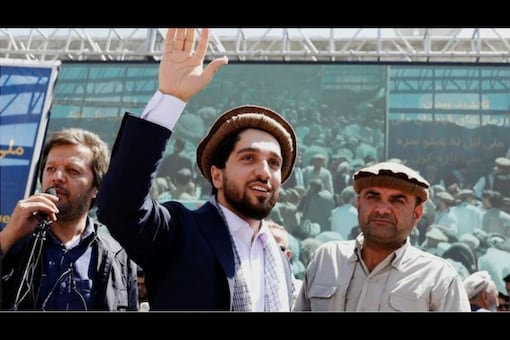
Ahmad Massoud is the son of Afghan mujahideen commander Ahmad Shah Massoud, who was known for successfully leading resistance groups from the Panjshir region. (Reuters File)
Ahmed Massoud is holding the Panjshir Valley with other ousted Afghan leaders, including Amrullah Saleh.
NEWS18.COM
LAST UPDATED:AUGUST 24, 2021, 13:48 IST
In what seems to be a complete victory for the Taliban, opposition fighters in the last bastion of anti-insurgent territory in Afghanistan — Panjshir — are preparing for a “settlement" in the absence of resources and international support, The Telegraph reported.
Ahmed Massoud, the son of renowned Afghan warlord Ahmad Shah Massoud, is holding the Panjshir Valley — which never fell to the Taliban during the civil war of the 1990s and was not conquered by the Soviets a decade earlier — with other ousted Afghan leaders, including Amrullah Saleh, the vice president who now claims to be the acting leader of Afghanistan.
It wasn’t too many days ago that Massoud had vowed he would not surrender to the Taliban. “I write from the Panjshir Valley today, ready to follow in my father’s footsteps, with Mujahideen fighters who are prepared to once again take on the Taliban,” he wrote in the Washington Post newspaper. “We have stores of ammunition and arms that we have patiently collected since my father’s time because we knew this day might come.”
ALSO READ | Taliban Near Panjshir After Retaking Three Northern Afghan Districts
He added, however, that his forces – which reportedly numbered more than 6,000 – would need international support. He called on aid from France, Europe, the US and the Arab world, saying they had helped in his father’s fight against the Soviets and the Taliban 20 years ago.
However, the tide seems to have turned as the Taliban were in position near the Panjshir Valley and had retaken three districts in northern Afghanistan that fell to local militia groups last week, a spokesman said on Monday, though there were no confirmed reports of further fighting.
An adviser to Massoud, whose identity The Telegraph did not disclose, said the 32-year-old was looking for a way to capitulate with his honour intact. “Panjshir can’t fight the Taliban, the Taliban have overwhelming forces,” the adviser said. “This is not the 1980s or 1980s, the Taliban have battle hardened fighters.”
As Massoud looks for a way out, here’s a lowdown on the leader, his roots and future course:
WHO IS AHMAD MASSOUD?
Ahmad Massoud is the son of Afghan mujahideen commander Ahmad Shah Massoud, who was known for successfully leading resistance groups from the Panjshir region against the Soviet Union and the Taliban and called ‘Lion of Panjshir’. Ahmad Shah Massoud led forces as the main opposition against the Taliban’s rule of Afghanistan, from 1996 to 2001, until his assassination in September 2001.
Born in 1989 in Piyu in the province of Takhar in northeast Afghanistan, Massoud finished his secondary school education in Iran and then spent a year on a military course at the Royal Military Academy Sandhurst, the UK.
In 2012, he commenced an undergraduate degree in War Studies at King’s College London where he obtained his bachelor’s degree in 2015. He obtained his master’s degree in International Politics from City, University of London in 2016. He officially entered politics in March 2019.
WHAT HAS HE SAID SO FAR?
Ahmad Massoud has said that he wants to hold peace talks with the Taliban and does not want to see a civil war in Afghanistan. However, he also warns that his forces are prepared to fight if necessary to oppose the Islamist group.
The Panjshir region has been notoriously difficult to conquer in the past, with the Soviet Union and the Taliban both failing to capture the area in the 1980s and 1990s.
However, the NRF, which reportedly has around 6,000 troops, will likely need international support to hold off the Taliban for an extended period.
STATUS IN PANJSHIR
The districts of Bano, Deh Saleh, Pul e-Hesar in the northern province of Baghlan were taken by local militia groups last week in one of the first signs of armed resistance to the Taliban since their seizure of the capital Kabul on August 15.
By Monday, Taliban forces had cleared the districts and were established in Badakhshan, Takhar and Andarab near the Panjshir valley, according to the Twitter account of spokesman Zabihullah Mujahid.
ALSO READ | Panjshir’s Landscape That Nestled Resistance May Choke, Experts Predict Taliban’s Edge Over Amrullah Saleh
Abdul Sayed, an independent researcher based in Lund in Sweden, said he did not share Massoud’s optimism for the chances of resistance.
“The Taliban surround Panjshir from all sides and I don’t think Massoud’s son can resist much more than a couple of months. For the moment, he does not have any really strong support," Sayed told AFP.
Analysts are also sceptical about whether modern-day anti-Taliban forces would be able to take on the victorious militant group, which has added the government’s US-supplied military hardware to its armoury.
“It’s not easy to walk in [to Panjshir], it is high peaks and passes, but the Taliban military are far stronger,” said a person with knowledge of the province’s security situation to Financial Times. “The resistance forces are absolutely no match,” he added.
August 24 2021

FAILURE: Touted as the man for the job, Zalmay Khalilzad has only overseen the demise of the republic he so painstakingly assembled.
AFP / Kabul
If one individual could bring peace to Afghanistan, US envoy Zalmay Khalilzad touted himself as the man for the job.
In the end, however, the seasoned diplomat has overseen the demise of the republic he so painstakingly assembled.
The 70-year-old Afghan-American envoy spent years as Washington’s point man for talks with the Taliban that paved the way for the deal to see the US end its longest war and exit Afghanistan.
That milestone came after more than a year of intense shuttle diplomacy during which Khalilzad visited foreign capitals, attended summits at glitzy hotels, and gave speeches at prestigious think tanks.
The Taliban were ready to discuss a compromise, he assured his audiences.
Once a prolific social media voice, Khalilzad has gone silent since the Taliban returned to power following the collapse of the US-backed government in the face of an overwhelming blitzkrieg.
The State Department said last week the envoy was working the phones in hopes of encouraging a diplomatic settlement.
But the deal he had hoped could end the war had actually unleashed disaster.
Husain Haqqani, a senior fellow at the Hudson Institute, said Khalilzad told successive US presidents eager to withdraw their troops that he had a peace deal, but it was in fact a surrender.
“He negotiated poorly, emboldened the Taliban, and pretended that talks would yield a power-sharing agreement even though the Taliban had no intention to share power,” Haqqani told AFP.
Khalilzad took control of the US-Afghan portfolio in 2018 after the Trump administration named him a special envoy overseeing negotiations with the Taliban.
The new assignment followed a storied career. Khalilzad had shaped embryonic governments in Afghanistan and Iraq following successive US invasions, gaining a reputation for bringing disparate groups to the table.
Washington’s decision to pursue talks followed years of rising violence in Kabul where the Taliban unleashed chaos by sending waves of suicide bombers into the Afghan capital.
Khalilzad secured the release of the Taliban’s co-founder Mullah Abdul Ghani Baradar from Pakistan’s custody to kickstart the initiative, with the two sides cobbling together an agreement charting the US withdrawal after nearly two decades of conflict.
During months of negotiations subsequently, Khalilzad was said to have developed a close rapport with the Taliban delegation.
Pictures published online showed the gregarious envoy sharing laughs and smiles with insurgent negotiators, stirring resentment in Afghanistan where the war raged. But when the US withdrawal deal was finally signed in February 2020, Khalilzad had secured mostly nebulous assurances from the Taliban about any future peace.
“Khalilzad prised... just one strong commitment — that they would not attack the US and ‘its allies’,” wrote Kate Clark of the Afghanistan Analysts Network in a new report.
More vague were promises from the Taliban to abandon Al Qaeda and other international jihadist groups, and to begin talking to the Afghan government.
In hindsight, the agreement appears to have been little more than a string of American concessions.
The US was leaving Afghanistan without a ceasefire and had not even established a framework for a future peace process that would be vital for locking down a settlement to end the war.
Rather than securing compromises from the Taliban in the months following the deal, Khalilzad piled more pressure on the Afghan government — strong-arming the palace into releasing thousands of insurgent prisoners who immediately bolstered the militant ranks. To add to Kabul’s woes, the agreement effectively set off a countdown, with the US promising to pull all of its remaining troops from Afghanistan by May 2021 — a deadline later extended until September.
The Afghan government was left with little time or space to maneuver.
US President Joe Biden’s decision in April to follow through with the withdrawal lit the final fuse, sparking an all-out offensive by the Taliban that overthrew the Afghan government by force on August 15.
Two days earlier, US lawmaker Michael Waltz — an Afghan veteran — sent a letter to Biden pillorying Khalilzad’s performance.
Khalilzad “has provided you with poor counsel and his diplomatic strategy has failed spectacularly”, he wrote.
“In light of this catastrophe, Ambassador (Khalilzad) should resign immediately or be relieved from his position.”
That same day, Khalilzad sent out his last tweet — begging the Taliban to pull back its fighters as they converged on Kabul.
“We demand an immediate end to attacks against cities, urge a political settlement, and warn that a government imposed by force will be a pariah state,” the envoy wrote.
By then, it was too late.
2021/8/24
©The San Diego Union-Tribune

In 1983, Harvard-educated psychiatrist turned Carter administration bureaucrat turned conservative pundit Charles Krauthammer wrote a remarkably prescient column for Time magazine about “the mirror-image fallacy” — the presumption of so many American policymakers and Americans in general that the leaders and residents of other nations shared our values.
“If people everywhere, from Savannah to Sevastopol, share the same hopes and dreams and fears and love of children ... they should get along. And if they don’t then there must be some misunderstanding, some misperception, some problem of communication,” Krauthammer wrote.
“If the whole world is like me, then certain conflicts become incomprehensible; the very notion of intractability becomes paradoxical. The more virulent pronouncements of Third World countries are dismissed as mere rhetoric. The more alien the sentiment, the less seriously it is taken. Diplomatic fiascoes follow. ... [The U.S.] might have spared itself [from debacles in Islamic nations] if it had not in the first place imagined that underneath those kaffiyehs are folks just like us, sharing our aims and views.”
America’s 20-year Afghanistan debacle is as precise a confirmation of Krauthammer’s insight as is humanly possible.
Yes, of course, President George W. Bush was going to exact retribution for the Taliban’s decision to allow Osama bin Laden to plan his 9/11 attacks in Afghanistan. But Bush’s commitment to not just punishing the Taliban but to taming and remaking Afghanistan was remarkable in its refusal to consider deeply relevant history.
Afghanistan — a remote, landlocked, mountainous, impoverished nation in west Asia — is built on tightly bound “kinship networks” in which extended families fiercely protect their own interests. A 2012 study found that in some provinces, a majority of marriages were “consanguineous” — among related men and women. The health risks are disregarded because of a desire by families to have first cousins marry so as to retain wealth and solidarity. This is one of many reasons why Afghanistan has never come close to having an effective central government. “Kinship networks” would perceive such a government as threatening.
Yet First World superpowers somehow have repeatedly convinced themselves that they could impose order on a distant, staggeringly different nation. In the 19th century, the British empire — then by far the most powerful force in global affairs — tried and failed twice to establish control of Afghanistan. In 1979, fearful that a new Afghan leader might switch his loyalties from Moscow to Washington, Soviet leader Leonid Brezhnev ordered the invasion of Afghanistan. Though it was then at the height of its global influence, the Soviet Union had no more success than the British in dealing with the 14 tribes of Afghanistan. Soviet troops left in 1989 without accomplishing a single lasting change.
Now it is America’s turn as a superpower humiliated by Afghans who resist Western ways. The Taliban’s easy reconquest of Kabul and other cities has produced a predictable political and media firestorm over the Biden administration’s failure to properly plan how to protect not just remaining U.S. diplomats, contractors and troops but the Afghan support personnel whose lives and families are at risk with militant extremists back in power.
But President Joe Biden — a deep skeptic while vice president of President Barack Obama’s decision to increase the U.S. military presence in 2011 to a record 82,000 troops — is right to see this as a failure of the national security establishment, and not just Bush. A decade ago, when Biden warned Obama that Afghanistan was a “dangerous quagmire,” he was opposed by both the Defense and the State Departments. He was right. More than 2,400 Americans have died, more than 20,000 were injured and more than $2.2 trillion in taxpayer money was wasted on a futile war.
In 2019, The Washington Post posted “The Afghanistan Papers,” an extraordinary investigation that showed the Bush, Obama and Trump administrations were fully aware of how corrupt Kabul was and how little credibility the central government there had. The lead: “A confidential trove of government documents ... reveals that senior U.S. officials failed to tell the truth about the war in Afghanistan throughout the 18-year campaign, making rosy pronouncements they knew to be false and hiding unmistakable evidence the war had become unwinnable.” In early 2002, six months after the war began, Defense Secretary Donald Rumsfeld privately warned the White House that disaster loomed if the U.S. couldn’t establish a strong central government.
But Bush listened to Vice President Dick Cheney, not to Rumsfeld or his father, former President George H.W. Bush, and somehow thought Afghanistan just needed nudging to become a bastion of American values. Call this what it is: the greatest, most grotesque policy screw-up in modern U.S. history.
Afghanistan has been around for more than 2,500 years. As three global superpowers discovered, its values are entrenched.
August 24, 2021

CBS/screen grab
In a Fox News interview Tuesday, Rep. Liz Cheney (R-WY) blamed former President Donald Trump for causing many of the problems that are being seen in Afghanistan.
"He set this in motion," said Cheney, whose father was in the White House when the war first began. "The idea that you can sit at a table and negotiate with the Taliban, count on them to defend our security, is wrong."
While there have been many criticisms of mistakes President Joe Biden has made, Trump's former officials have come forward to reveal problems set in motion by the Trump administration.
In an interview with DefenseOne, former acting Secretary of Defense Chris Miller revealed that there was never any intention of removing Americans from Afghanistan by the May 1 deadline. He said that the Trump administration was going to work with the Taliban to ensure a presence would remain
See the interview with Cheney in the video below:
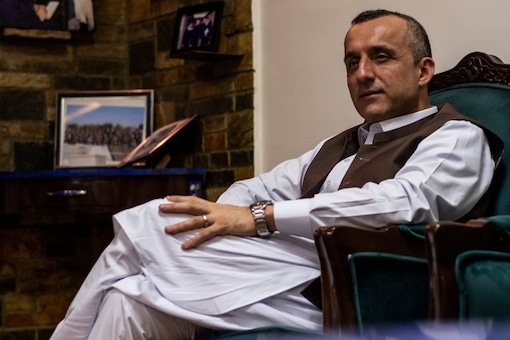
As president Ashraf Ghani fled, Afghanistan's vice-president Amrullah Saleh vowed to not leave his country and fight the Taliban. (New York Times)
As the insurgents continue their rampage in the war-torn country, Amrullah Saleh spoke to CNN-News18 about the collapse of the state, US ‘miscalculation’ and Panjshir Valley
CNN-NEWS18
LAST UPDATED:AUGUST 25, 2021,
Afghanistan’s “acting" President Amrullah Saleh has put a brave front so far as the Taliban take over the country, forcing thousands of Afghans to leave behind their homes and belongings and flee to safer areas. As Afghanistan president Ashraf Ghani fled, accepting that the Taliban had gained control, Saleh said he was proud of the armed forces and the government would do all it could to strengthen resistance to the Taliban. As the insurgents continue their rampage in the war-torn country, Saleh spoke to CNN-News18 about the collapse of the state, US ‘miscalculation’ and Panjshir Valley — last anti-Taliban bastion in government’s control. Edited excerpts:
Did you expect the collapse of the Afghan state to happen in the manner it did? And what is your impression of the manner in which Ashraf Ghani left?
I don’t think this is the right time to reflect on that massive tragedy.
Who do you blame for the Taliban’s takeover of Afghanistan and why? What do you think will be the ramifications of the Taliban’s Kabul takeover — both for Afghanistan and the world? Will Afghanistan become a breeding ground for terror?
It’s very clear that the Taliban were never under pressure; they used Pakistan as their support base. Not sanctuaries, whole of Pakistan was under the service of Taliban. US tried to incentivise the Pakistani cooperation to buy it; the more they paid, the more it emboldened the Pakistanis to provide more services and aid to the Taliban so the issue of a nuclear state sponsoring terrorism and insurgency against western allies in Afghanistan was never addressed.
The second reason is that Doha talks legitimised the Taliban who did not remain loyal to their words. They did not honour their commitment and they fooled the whole international community. The purpose of Doha was to keep the international community divided, keep them hopeful about a peaceful process that did not exist.
The third reason is that in the last two years, the republic came under enormous pressure from our American allies; they blackmailed us and said that either you release the prisoners or we will cut aid to you and decrease our military assistance. We said are you sure that these people will not end up at the frontlines and their answer was no, whereas they all ended up there at frontlines. So it was not prisoners’ release but gifting Taliban a division of highly radicalised fighters.
Fourth reason is that there were people in our government who were not aware of the situation and took everything for granted. We cannot, however, confine the downfall to these four reasons as there are various other reasons which led to this tragedy.
The bottom-line is that NATO is gone, US military is gone, but the Afghan people have not gone…they could not be evacuated. Kabul airport is tip of an iceberg. The country has sunken into tragedy and terrorists group have taken over Afghanistan. Today, for example, a money launderer who was facilitating transactions between al-Qaeda sympathisers and Taliban has become governor of Afghan central bank, Haqqanis are running Kabul…needless to explain who Haqqanis are. This is a shame and betrayal and I don’t want to be a part of that shame and betrayal.
We will fight till the enemy believes that Afghanistan should remain Afghanistan and not become Talibanistan.
What do you think of the American attitude and behaviour during this episode? Their sudden departure and leaving so many arms and ammunition and reports that all arms and ammunition have been taken by Pakistan to Quetta.
They are watching what they did. They are seeing how the world media is writing negative things about them… US is a global power, mightiest military power and we never wished them bad but this shows a single wrong political judgement humiliates a super power too. It wasn’t ever about American military or American intelligence… it was wrong judgement, wrong decision and they have started to pay the price.
In hindsight, there is no doubt that the US miscalculated the Taliban threat. You were the Vice-President in Ashraf Ghani’s administration. Why couldn’t your officials assess what was happening on the ground?
If a super power decides to go this way or that way, there is so little or nothing we could do to change their attitude. I do accept that I have been a major player and a person of significance but did we have any say in US decision? No. We did not manage to influence their decision. What happened in Afghanistan… I have been warning about these consequences for 2 years. They all are paying the price now. This was a political decision, not a military or intelligence one… It wasn’t the Taliban who won this war, it was the lack of political win in Washington which led to this scramble.
What is the security situation at the Panjshir Valley, where you and Ahmad Massoud are leading an armed resistance against the Taliban? There are reports that the Taliban have sent hundreds of fighters to the Valley.
It’s perfect. We are in control of the situation. I move around with minimum security. It’s an area which has an exceptional reputation.
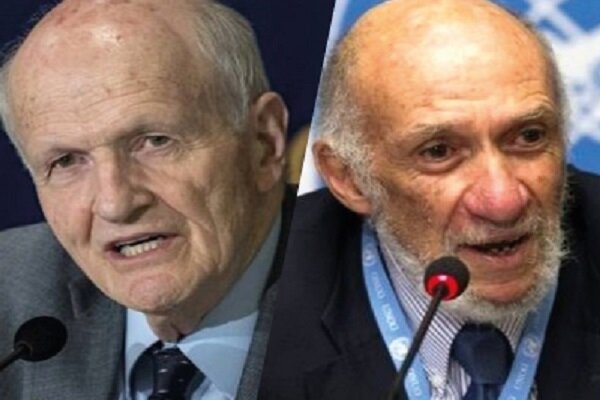
TEHRAN, Aug. 20 (MNA) – Two prominent American experts and politicians analyzed the latest developments in Afghanistan and the reasons for the rapid collapse of Kabul and the US last two decades and future policies in this country.
Taliban forces have made significant progress in Afghanistan over the past week and have captured almost all of Afghanistan from the Afghan National Defense Security Forces (ANDSF). The successive fall of the Afghan provincial capitals to the Taliban, not with heavy weapons, fighters and helicopters, but with individual light weapons, once again stunned the world.
Some military and political experts believe that behind-the-scenes gangs and some groups within the government were involved in the downfall of the cities. According to the estimates of Western governments and American generals, who were the founders of the Afghan army in the early years of the twentieth century, in the best case, these forces would have to resist for up to six months without foreign aid, and in the worst case, for three months.
The available data set on the current developments in Afghanistan emphasizes that weakness and internal conspiracy can not be considered only as of the main cause of the early collapse of the Afghan army and the government of Ashraf Ghani and ignored the decisive role of the Americans.
To shed light on the reason behind the fall of Afghanistan and the role of the US during this period, we reached out to Professor Richard Anderson Falk, an American professor emeritus of international law at Princeton University and former UN official and Professor Frank von Hippel, an American theoretical physicist, and a Professor of Public and International Affairs at Princeton University.
Following is the text of the interviews with Prof. Falk and Prof. von Hippel in which they shared their views with MNA audiences:
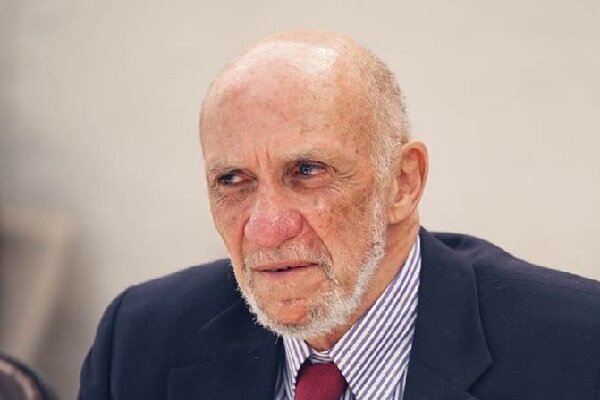
Why could the Taliban capture Kabul and gain power so rapidly without considerable resistance from people and the army?
Falk: The US led NATO Afghan intervention and occupation was flawed from its outset in 2001, and indeed in the period before that. In the post-colonial world, the military superiority of Western intervening powers has proved unable to shape the political outcomes of a prolonged struggle for the control of non-Western sovereign spaces. In Afghanistan, as elsewhere, this observation proved correct, despite trillions of dollars spent in devastating parts of the country and supposedly building armed forces and police capabilities capable of bringing order and stability to the post-Taliban governance process.
The fundamental explanation of the rapid collapse of the Kabul government is that it had no legs of its own to stand upon. Afghan collaboration with the intervenors was largely left to opportunists, corrupt politicians and private sector entrepreneurs, and ambitious careerists, as well as the alignment of some ethnic groups, and the support of secularized social elites in the larger cities. The Taliban despite its abysmal human rights record during its five year period in power at the end of the last century never lost its credibility as a defender of the Afghan homeland and retained the loyalty of many nationalist elements in this essentially religious country.
The unexpectedly quick collapse of the Kabul government so painfully constructed by the Western intervenors over a twenty-year period of occupationIn explain the unexpectedly quick collapse of the Kabul government so painfully constructed by the Western intervenors over a twenty-year period of occupation, Taliban reassurances of peace and reconciliation undoubtedly further weakened whatever will to resist survived the American military withdrawal. These reassurances included proclaiming the end of the war for control of the country, amnesty for those who worked in and on behalf of the Kabul government, promises of the protection of the rights of women, tolerance of diversity, and pledges not to allow its territory to be used in the future as it was in the past as a base for projecting terrorism beyond its borders.
Yet the basic explanation of the unexpectedly quick collapse of anti-Taliban resistance also reveals the political misjudgments of the United States despite 20 years of experience in the country. It obviously did not appreciate that its investment in the Afghan army and police force failed to create even the semblance of a countervailing force to that at the disposal of the Taliban. Had Washington realized this vulnerability to collapse, it would handle its own withdrawal differently, getting its Afghan collaborators out while it still could control the main cities.
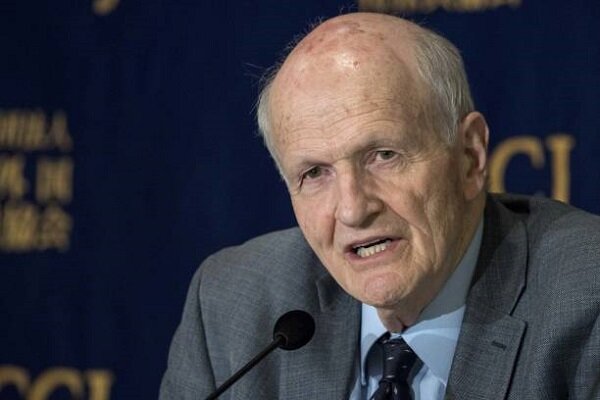
von Hippel: I was surprised as anyone by the rapid collapse of Afghanistan’s military. My guess is that they had more confidence in the NATO military forces in Afghanistan than in their own government. The NATO military forces had drawn down to about 10,000 troops but there were in addition about 20,000 contractors supporting the Afghan air force as maintenance technicians, providing security for the embassies, etc. When this support structure was withdrawn, the Afghan military lost the confidence to fight.
Afghanistan’s military had more confidence in the NATO military forces in Afghanistan than in their own governmentThat suggests that Afghanistan’s military leadership did not earn the confidence of its own troops and/or did not have confidence in the government. It also suggests that the US military did not understand or did not inform the US political leadership about how fragile the situation was. This is very similar to what happened in Vietnam where the US military always promised the political leadership that, after another year of effort, South Vietnam’s military would be able to stand on its own feet.
I don’t understand why the population did not pick up the arms that Afghanistan’s military laid down and fight the Taliban itself. It is hard to understand how any population would be willing to submit to such fanatics. If the local populations had been more willing to support Afghanistan’s military, perhaps the military would have fought better.
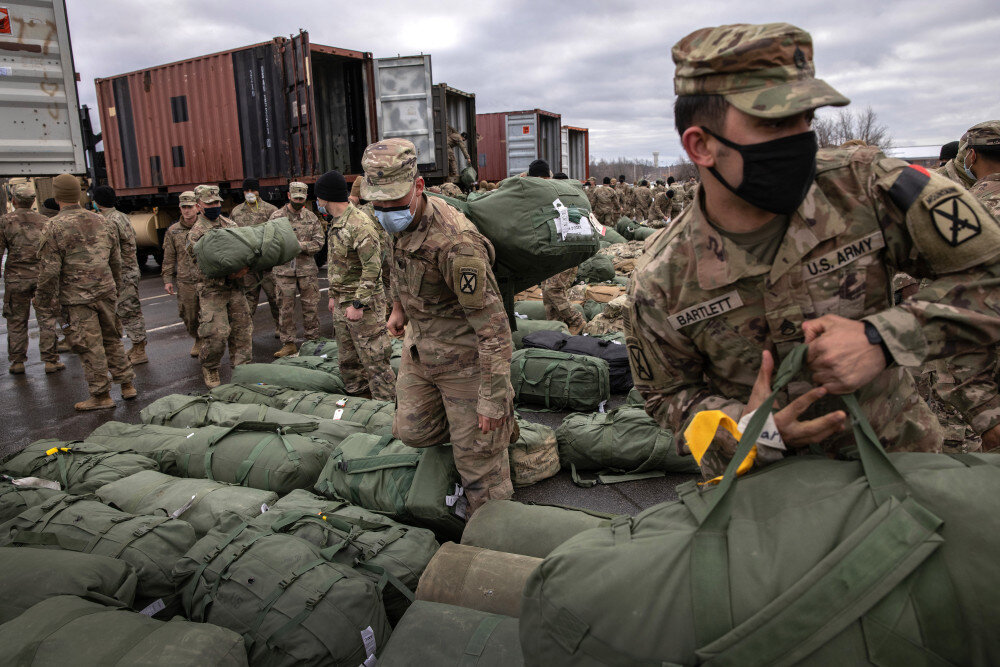
How do you assess the US policy in Afghanistan during the past 20 years? To what extent the US policy is responsible for the current instability in the country?
Falk: To some extent, my response to the prior question covers these issues. The idea of intervening in a non-Western state in the post-colonial era should have been discredited long ago. The success of the anti-colonial movements in Asia and Africa should have demonstrated to the West that military intervention on the basis of acceptable costs in lives and resources was no longer a policy option, however great the temptation. The result of such missions impossible is devastation, widespread human suffering, so-called ‘forever wars,’ and an eventual ‘intervention fatigue’ by the American public and leadership that is expressed by a growing political consensus that the undertaking, whatever its ideological or imperial The Idea of intervening in a non-Western state in the post-colonial era should have been discredited long agomotivations, is not worth the effort. It is too costly and the geopolitical payoff, if any, is too obscure to justify killing and dying. Because American lives and taxpayer dollars were increasingly seen as wasted, the resulting political failure is disguised by the leadership with a lame rationale that convinces almost no one except a compliant Western media. It is rejected, including by returning American soldiers who felt cheated, understanding that their patriotic sacrifices were in vain even misguided and that the whole imperial venture had been built on delusions and lies.
The reason that these patterns of failed interventions continue, oblivious to this record of failure arises in part from an absence of moral and political imagination needed to comprehend the changed international circumstances of the 21st century. This absence includes the refusal to learn from China about how an ambitious state should go about expanding and heightening its prosperity along with its regional and world influence in a post-colonial era. In part, this failure is systemic. It is associated with the bureaucratic and entrenched interests in the United States that benefit from a high defense budget and a militarized approach to security, which in turn depends on exaggerating, and even inventing, international threats and hiding the global shift in the balance of forces from geopolitical intervenors to national forces of resistance motivated by an ethos of self-determination as the most basic of human rights.
von Hippel: Afghanistan was unstable when the US came in. It was being run by fanatics whose social model was more than a thousand years old and who were opposed by local “warlords.” The US put great efforts into strengthening the society, including empowering and educating women but was unsuccessful in fighting corruption and the importance of opium growing to the domestic economy.
US put great efforts into strengthening the society, including empowering and educating women but was unsuccessful in fighting corruptionThis failure contrasts with the success of the US after World War II in turning Germany, Italy, Japan and South Korea into economically successful democracies. But Germany, Italy and Japan were modern societies before World War II that could generate their new leaderships for the rebuilding process. Vietnam, Iraq and Afghanistan were not and the US was overconfident that it could both fight corruption and supply what was missing.
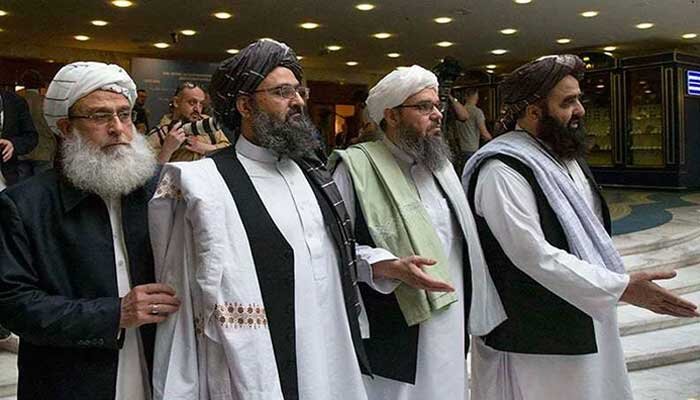
How do you see the future of Afghanistan? What US approach should be taken toward the country in future?
Falk: It is very difficult at this time so soon after the Taliban victory to anticipate the future of Afghanistan. It will depend, first of all, on the behavior of the Taliban as the governing force, and how this is portrayed in and manipulated by foreign countries, especially in the West. The US, in particular, will likely maintain a very critical attitude partly to continue the myth that its intervention was justified was based on good intentions and the attempt to make life better for the Afghan people. The Taliban will also react in terms of its perceptions as to whether the US has genuinely respected the outcome of the struggle, becoming respectful of Afghani sovereignty, and does not launch attacks or impose sanctions. After all, Afghanistan was victimized by two decades of intervention, and will naturally give a high priority to defending the security of the country and its governing process.
US, in particular, will likely maintain a very critical attitude partly to continue the myth that its intervention was justified and based on good intentions and the attempt to make life better for the Afghan peopleThere is bound to be some hostile propaganda from a growing and aggrieved Afghani refugee community, which might be manipulated by American militarist and reactionary forces to restore political will in the United States, reviving its reputation as a self-confident custodian of global security. It is instructive to look back at the behavior of the United States in the decade after its withdrawal from Vietnam in 1975 under somewhat similar circumstances when it tried, among other evasions of defeat, to sell the hysterical idea that the alternative to fighting in Vietnam for the American people was to fight its enemies within American territory.
The best approach for the United States, although unlikely, is to encourage Taliban moderation by exhibiting deeds and words an acceptance of the outcome in Afghanistan. This could be expressed by a rapid grant of diplomatic recognition of the Taliban as the legitimate representative of the Afghani people in all international arenas, and a commitment to provide significant amounts of humanitarian assistance. It is also important that departures from Afghanistan should be handled in a non-provocative manner, stressing humanitarian responsibilities, and appreciating that many of those departing from Afghanistan partook of corruption and opportunism during the American presence.
In the wider context of international relations, I would hope that the failures of the US approach to Iran ever since 1979 would at last lead the political class in Washington to switch its tactics from confrontation to accommodation. It is never too late for this to happen. I wish I could conclude my responses by expressing the belief that it will happen in the near future. I am not presently hopeful.
von Hippel: It is hard for me to see how the US can do much to help Afghanistan develop under the Taliban leadership. I think we owe help to those Afghanistan citizens who have joined the modern world and who manage to escape Taliban control – either to the Kabul airport or over the borders. But I fear that many – especially women and children – will be trapped and lose hope in their ability to pursue better lives. It is a terrible tragedy.
In addition, the US is concerned that Al Qaeda and/or other terrorist groups will be hosted by the Taliban again. But, with communications interception, drones, etc., it should be possible to target such groups from outside the country.
Interviews by Zahra Mirzafarjouyan

TEHRAN, Aug. 16 (MNA) –In an interview with MNA, political scientist Prof. Entessar talked of the worst and best scenarios of Talinan's rule over Afghanistan and the possible domestic and regional opportunities and consequences of it.
The Taliban rapidly advanced in Afghanistan and took control of the capital city Kabul. Knowing the real essence and nature of the Taliban, domestic and regional consequences of its rule over Afghanistan and the US approach towards the group and the recent developments of the country are of the great importance.
There are two different attitudes towards the Taliban nowadays. Some optimistically believe that today’s Taliban is different from the group that existed two decades ago and the others pessimistically believe that the existing changes to the Taliban’s behavior are just a tactic to gain power in the country and today’s Taliban is not different from the previous one.
To know more about the issue, we reached out to Nader Entessar, professor emeritus of political science from the University of South Alabama.
Here is the full text of the interview with him:
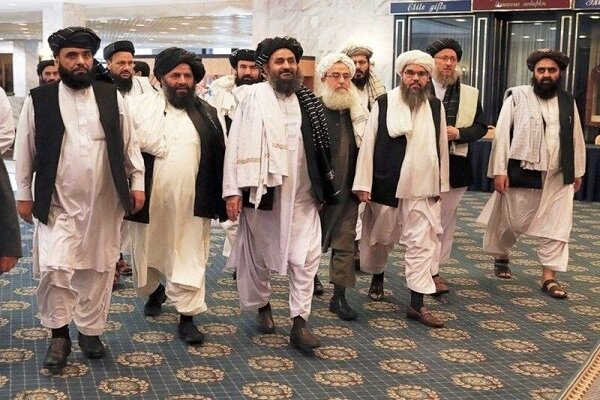
What do you think of the above mentioned two different attitudes towards the Taliban?
Of course, it is too early to know how the Taliban will operate once they are in complete control of Afghanistan's government. So far, they have said all the right things, but I remain skeptical. The Taliban may have learned some lessons from their previous rule in Afghanistan, but I have seen no concrete evidence that they are a different group from what they were two decades ago. At this time, I remain pessimistic about the long-term domestic and regional impact of the Taliban rule.
To what extent the US policy and its interventions are responsible for the current instability and violence in the country and the sufferings of the country’s people?
When the US invaded and occupied Afghanistan, the country was already in shambles as its sociopolitical and economic structures had been destroyed by years of civil war and the Taliban's misrule. The US promised to establish a stable, prosperous, and democratic Afghanistan. But after two decades of occupation and engaging in its longest war in history, the US failed in its stated mission and was forced to accept a hasty retreat. The fall of Kabul in 2021 reminded me of the fall of Saigon in 1975 which occurred after another misadventure by Washington, albeit at a different time and under different circumstances, but both were the results of arrogant imperial "nation-building" undertakings.
In the optimistic best scenario what can be the challenges and opportunities of the Taliban’s domination for the people of Afghanistan?
Under the optimistic scenario, the Taliban will bring some stability inside Afghanistan and a modicum of understanding with the country's neighbors.
In the pessimistic worst scenario what can be the challenges and opportunities of the Taliban’s domination for the people of Afghanistan?
In the worst-case scenario, the Taliban will try to impose a draconian system in Afghanistan, leading to further deterioration of life in the country and threatening the security of Afghanistan's neighbors and broader Central Asia in the long run.

In the optimistic scenario what can be the challenges and opportunities of the Taliban’s domination for the other countries of the region?
In the best-case scenario, the Taliban will be able to implement what they have said they intend to do, namely normal relations with Afghanistan's neighbors and not allowing the country to be used as a springboard by groups that threaten the security of the region.
In the pessimistic scenario what can be the challenges and opportunities of the Taliban’s domination for the other countries of the region?
The Taliban's misrule can provide major challenges to Afghanistan's neighbors and regional sociopolitical and economic stability. For example, India may withdraw or significantly scale back from the Chabahar project as it may not be economical or even feasible to rely on Afghanistan as a transit route to Central Asia. If this happens, Iran will obviously be affected by the downfall of its Chabahar port project. The reinvigorated extremism will obviously threaten the security of many regional countries and Central Asia. As was the case more than two decades ago, the Taliban's misrule will also result in another major refugee crisis that will negatively impact Afghanistan's neighbors, especially Iran that is still grappling with the consequences of the previous massive Afghan refugee influx.
Interview by Payman Yazdani
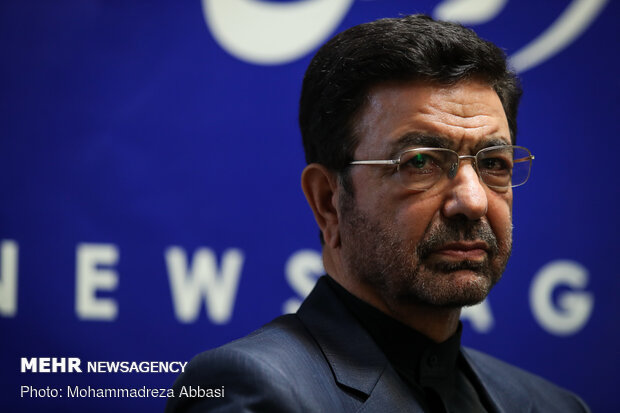
TEHRAN, Aug. 18 (MNA) – A Member of the National Security and Foreign Policy Committee of the Iranian Parliament said Ashraf Ghani's mission was to hand over the country to the Taliban and to obey the US' orders.
The Iranian MP, who is a former Iranian Ambassador to Afghanistan, Fada-Hossein Maleki told Mehr News Agency that Ghani betrayed himself by selling himself to the Americans and fleeing Afghanistan.
The Afghan army has shown a lot of courage in recent years, but unfortunately in the case of the Taliban, the army did not do anything, which was due to Ghani's betrayal.
"Ashraf Ghani's mission was to hand over the country to the Taliban, to obey the orders of the Americans, and this is a defeat and a disgrace for Afghanistan," he added.
Stating that the Taliban's speed in dominating Afghanistan was unacceptable, he said "The scenario behind the Doha summit between Ghani, the Taliban leaders and the United States was the handover of Afghanistan to the Taliban."
"But Ghani betrayed all Afghan officials," Maleki said.
"If the Taliban government gains the consensus of other leaders, tribes, groups, and political currents, it can survive in the form of a national unity government," he said, "Otherwise, the Taliban alone will not be able to form a government and rule in Afghanistan."
HJ/5283346
No comments:
Post a Comment